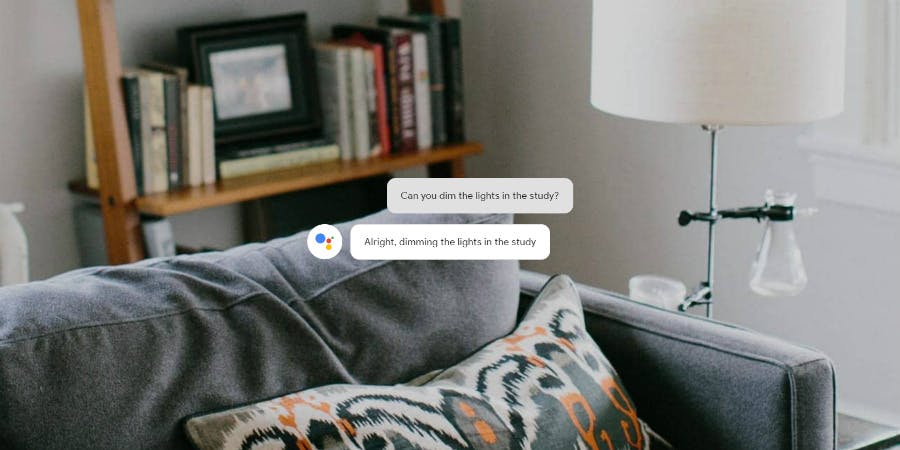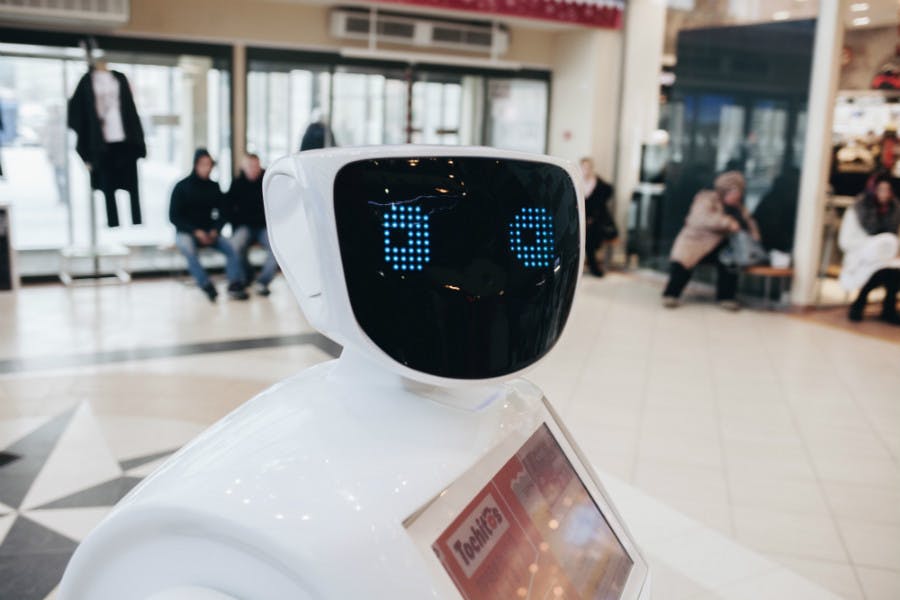Would you let a robot make a salon appointment for you? You might be able to in the near future. Google has recently displayed Google Duplex, an AI-driven tool that enables Google Assistant to make calls and set up appointments on a user’s behalf.
Google Duplex in action, making phone calls and booking appointments with a remarkably naturalistic-sounding voice.
While Duplex isn’t hitting the general public yet, its appearance marks a significant point in history for Artificial Intelligence (AI). And though a lot of excitement has been generated over the developing technology, there’s been a large amount of controversy stirred up, as well.
What Exactly is Google Duplex?
Earlier this month, at I/O, its annual developer conference, Google unveiled its work on Google Duplex. Essentially, Duplex is a technology which uses artificial machine intelligence to serve as a “virtual assistant.” Via Google Assistant, Duplex could complete phone calls on your behalf. In the video demonstration at I/O, Google shared phone calls placed between Google Assistant (using Duplex) and real-life businesses.
The AI sounded surprisingly human, using “um,” “mmm-hmm,” and other pauses which mimic the conversational patterns in natural language. Phoning both a hair salon and a restaurant, the AI was successful in booking an appointment and getting the information requested. When told that the restaurant did not offer reservations for parties of less than 5, the Google Assistant was able to “understand” and to end the call.
In one service, Duplex unites natural language processing, deep learning, and text-to-speech technology. The most fascinating element might be how Duplex has been engineered. It registers latency, such as pausing in response to a greeting. This creates an easier, human-styled conversation flow. The technology also understands how to alter vocal intonation depending upon cues from the other party. Essentially, the bot is reacting how a human would when on a telephone call.
For a user, the Google Duplex technology is designed for convenience and efficiency. It is meant to be a tool that saves us time in our busy lives, by taking over these small, but often necessary tasks.
While many businesses allow customers to book appointments or make reservations online, plenty of small businesses still do not offer this function. Instead, you must make a traditional phone call to book. With Google’s AI, the phone call can be made on your behalf, by a literal “virtual assistant.” You would ostensibly provide your requested dates, times, and desired services, and the bot will get in touch with the business and then report back to you when the appointment has been booked.
Google Duplex is still a work-in-progress. It seems that official testing of it will begin this summer, but how that will play out is as yet unclear. Needless to say, it’s appearance has set off a firestorm of thoughts, opinions, and even opposition, within the tech world and beyond.

Google Duplex will take Google Assistant to the next level
The Main Controversy
One of the biggest bones of contention for many critics began with the example calls. Would Google Duplex identify itself as a robot? Google’s presentation did not indicate this, but after some online public outcry, Google has stated that it will ensure the AI will make itself “appropriately identified” in the future.
The lack of disclosure in the presentation’s phone calls is a major part of the controversy. With the AI’s human-sounding voice capabilities, many critics have stated that the AI could be essentially “tricking” people. Without disclosure, there is a worrying lack of transparency that raises potential ethical dilemmas.
Should a bot need to disclose that it is a bot?
Should bots have human-sounding voices?
What are the ethical ramifications of not disclosing?
These questions and many more, have been the subject of debate ever since Google introduced Duplex. Some reactions have been more heated than others. One university professor even tweeted that demonstration of Duplex was “horrifying” and called Silicon Valley “ethically lost.”
But truthfully, the debates have been raging even before this latest iteration.
Will AI fit into our world in the future? And how?
What is Artificial Intelligence?
First, let’s delve into defining and examining artificial intelligence--an idea which first appeared in 1956.
Artificial intelligence is the ability of a machine or a computer program to display human-like intelligence, performing tasks and/or adapting to new stimuli and information. To define something as AI, it must be able to “mimic human thought process and behaviour….[and] act in a human-like way—intelligent, rational, and ethical.”
Artificial intelligence is already part of most of our lives. If you’ve ever interacted with smartphone assistants like Siri or Google Assistant, you’ve experienced firsthand how a “machine” can respond to you, understand what you need or what you’re searching for, and even begin to “learn” your preferences.
Using Google Maps or other traffic apps during your work commute? Artificial intelligence is being used by these programs to help map out the best route for you to take, avoiding traffic or auto accidents.
Spam filters on your email inbox are another example of AI. Constantly learning and defining what is spam, through a variety of factors including your own personal preferences, spam filters have proven to be highly successful. You may have noticed how little spam email gets through these days. These are just a few key examples of how AI is already being utilised in our everyday lives.

In the not-so-distant past, this was the image typically conjured by the term “artificial intelligence”
Opposition to AI
AI may already be making an appearance in various elements of our world, but there are some---many of whom are quite vocal---warning society against it.
Several years ago, noted astrophysicist Stephen Hawking stated that the success of AI would be one of the greatest events in history, but he cautioned against its power. In fact, he said that AI had “the potential to destroy civilization.”
Tesla CEO Elon Musk shares similar concerns. He has spoken out vehemently regarding AI in the past, decrying it as a massive risk to humanity, and citing it as having the potential to start a war. His biggest worry, it seems, is that AI could take over, perhaps even creating an “immortal dictator.” One can’t help but find his arguments compelling, particularly when he warns that AI could be catastrophic, even if it isn’t inherently “evil.” He said, “If AI has a goal and humanity just happens to be in the way, it will destroy humanity as a matter of course without even thinking about it. No hard feelings.”
Sobering stuff.
But not everyone believes that AI signifies the end of times. Others merely have concerns about its place in an ethical, human-lead society.
One area of concern is the job market. If, as many suggest, AI will someday be able to outperform humans at simple tasks, what does that mean for jobs? Will robots put a large portion of the global population out of work? Some researchers suggest that AI will only serve to create jobs and boost the economy, but others aren’t so sure.
And what about our social interactions? Will AI render person-to-person contact unnecessary? While it’s hard to imagine a world in which human connections didn’t exist, it’s not hard to see how AI could lead to a decrease in face-to-face conversations. The potential impact of this could be major, influencing our social habits and perhaps even affecting our mental health and personal happiness. After all, humans are social creatures.
A Place for AI in Your Life
How would you feel about using AI? Would you rely on Duplex to book you a hair appointment? Or do you, like some of the major opponents to AI, find the idea to be unsettling or even dangerous? Your opinion may have more of an impact than you think.
The next steps forward for AI may depend largely upon how people actually end up using it. The Duplex technology could serve as a good introduction to how the general population feels about AI, especially since it is a further step forward than something like Siri or Google Maps. Will we happily use robots to keep our schedule organised? Or, despite the useful tech, will we still prefer to do certain things ourselves? There’s definitely an argument for maintaining the human element in our interactions.
The ultimate future of AI may still be far off. Despite unique advances like Duplex, AI is not progressing quite as quickly as we might have thought in years past. Duplex, for instance, functions only within specific domains. The bot can only perform tasks such as making salon appointments or booking dinner reservations because the intelligence has been extensively trained in that singular domain and topic. As this New York Times article states, Thoughtful, “open-ended conversation on a wide range of topics is nowhere in sight.”
At least for now, our fears about robots “taking over the world” are still only the stuff of science fiction.